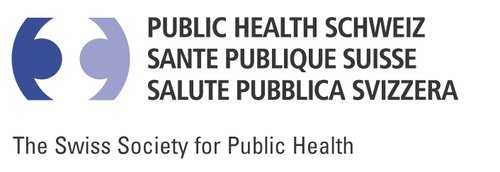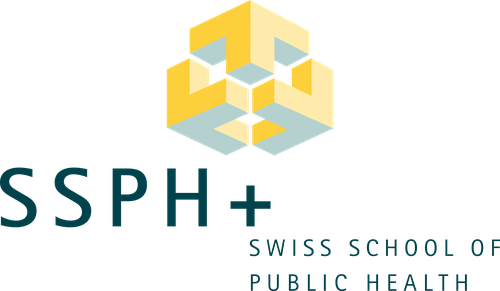The organizers of the Swiss Public Health Conference
The Swiss Public Health Conference is organised each year by The Swiss Society for Public Health and the Swiss School of Public Health (SSPH+). Each year, a Swiss academic institution assumes the role of host and takes the scientific-thematic lead.
The Swiss Society for Public Health
The Swiss Society for Public Health is an independent national organisation representing the concerns of public health. With its expert Council, six thematic specialist groups, as well as individual, collective members and donors, it builds a nationwide interdisciplinary network for public health experts, who are given the opportunity for professional exchange. The Swiss Society for Public Health is committed to create optimal conditions and support decision-makers for the improvement of the Swiss population’s health. The Swiss Society for Public Health organizes several symposia on topical health issues each year.
Swiss School of Public Health (SSPH+)
The SwissSchool of Public Health (SSPH+) unites the public health expertise of fourteen Swiss universities within a unique inter-university structure. As a “virtual faculty,” SSPH+ strengthens health sciences through interdisciplinary research, innovative education and training programs, and the promotion of young scientists. More than 270 professors and around 400 doctoral students collaborate on projects spanning epidemiology as well as the social, political, and economic dimensions of health. With its lean, collaborative organization, SSPH+ provides the scientific basis for evidence-based health policy and contributes to the sustainable strengthening of public health in Switzerland and beyond.
Faculty of Health Sciences and Medicine - University of Lucerne
The University of Lucerne is Switzerland's youngest university and is distinguished by its human sciences profile. It currently comprises six faculties: Theology, Cultural and Social Sciences, Law, Economics, Health Sciences and Medicine, and Behavioral Sciences and Psychology. Research and teaching focus on people and their institutions. With around 4,000 students, it offers and promotes a personal learning atmosphere. The modern campus is centrally located in Lucerne and offers an inspiring environment on Lake Lucerne.
The Faculty of Health Sciences and Medicine is actively shaping the healthcare of tomorrow – scientifically sound and socially relevant. The faculty stands for interdisciplinary teaching and research in the fields of health, medicine, and healthcare systems. It pursues an interprofessional approach that integrates medical, social, and humanities perspectives. The faculty offers degree programs from bachelor's to doctoral level in Health Sciences, as well as a Joint Medical Master's degree in Medicine in cooperation with the University of Zurich and a medical doctorate. Close partnerships with clinics and other health institutions ensure a high level of practical relevance.

Scientific Committee
- Gabriela Scherer, University of Lucerne
- Sara Rubinelli, University of Lucerne
- Stefan Boes, University of Lucerne
- Thekla Brunkert, University of Lucerne
- David Weisstanner, University of Lucerne
- Dorothee Guggisberg, HSLU
- Nicola Diviani, Schweizer Paraplegikerforschung Nottwil
- Jacqueline de Sà Schwab, Federal Office of Public Health (FOPH)
- Carlos Quinto, FMH
- Anne Jachmann, PH Doctors
- Valérie Clerc, Swiss Academy of Medical Sciences
- Arnaud Chiolero, Swiss School of Public Health (SSPH+)
- Nocera Sandra, Swiss School of Public Health (SSPH+)
- Steffen Thomas, The Swiss Society for Public Health
- Bettina Maeschli, The Swiss Society for Public Health

